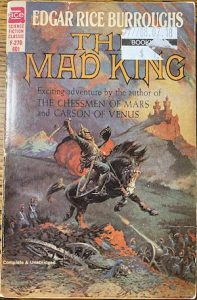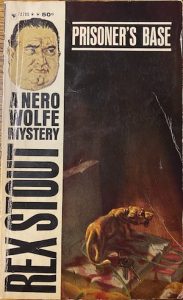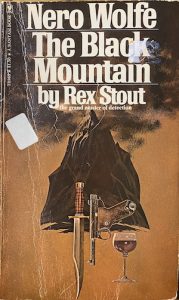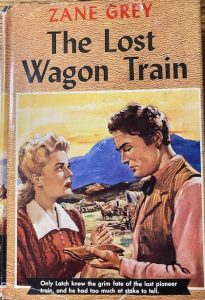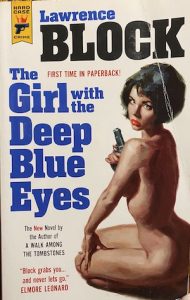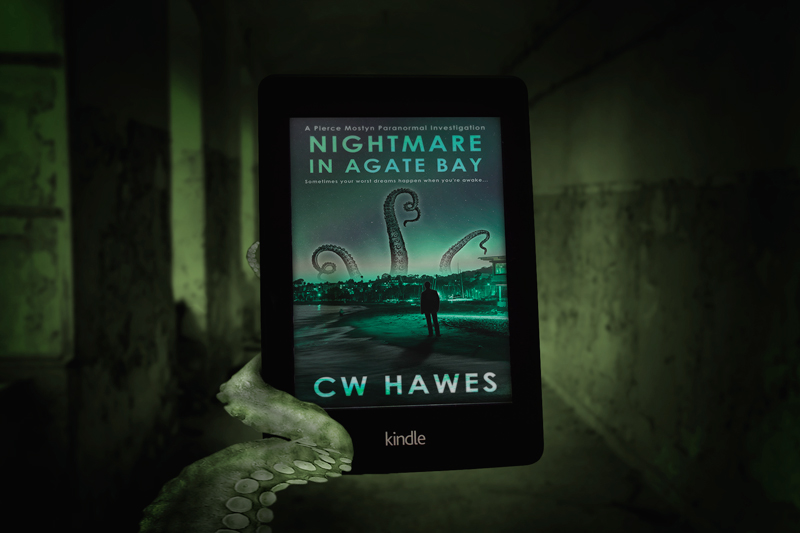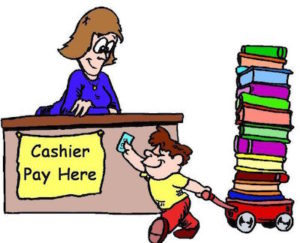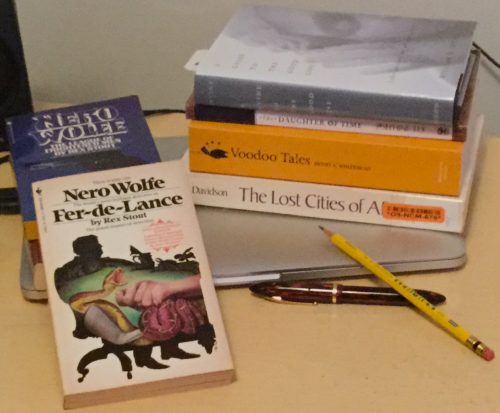
I love to read. Reading provides a joy few things can match. If you follow this blog, you’re aware of that. However, books are expensive to buy. And when I tally up my outlay for the printed page, whether physical or digital, I go into a bit of sticker shock.
Perhaps that’s one reason subscription libraries such as Scribd and Kindle Unlimited are popular. For a monthly fee, you can read as much as you want. And if you are an avid reader, the service can easily pay for itself. Of course there are the public libraries, which your tax dollars pay for. The only problem I have with public libraries is that you have to return the books. And I suppose that goes for subscription libraries too.
Awhile back, Amazon gave me a 60-day free trial of Kindle Unlimited. However, once the trial was over, I dropped it. Even though I did end up reading at least $20 worth of books, that’s $10 for each month, I found that I had to sift through a lot of chaff to find the wheat.
For me, I find it a better use of my wallet and time to go the sample route. Download a sample. After all, they’re free. I can read it at my leisure, and if I like the sample, then I buy the book. I spent an awful lot of my reading time on KU partially reading books I didn’t like, all the while feeling the pressure to tally up $10 worth of reading for the month. I’m retired. I don’t want or need pressure.
Since I discovered subscription libraries (and public libraries) aren’t my cup of tea, what alternatives do I, and you, have?
Free Books
The world is awash in free books. Indie writers trying to secure a fan base have given away lots of books. They are everywhere. Some are very good, others not. Many are short stories, or novellas (which I happen to like, but many don’t), and some are just samples.
For the voracious reader, the free stuff can be good.
Another source of free books can be found at places like Faded Page, Project Gutenberg Australia, and Project Gutenberg. These places offer books that are out of copyright. Which means the books are older. And you can usually find many classics in their lists.
I recently downloaded Raymond Chandler’s novels from Faded Page. A great deal.
There are plenty of free books available. Which can keep us reading for a long time.
Used Books
I love used books. Great deals can be found in used bookstores, and especially garage sales, where the books are often close to being free.
Libraries often have sales of the books they discard. They are another source for good cheap reads.
For a long time now, I’ve only purchased used copies of traditionally published books due to their high cost when purchased new. Paperbacks selling for $15 and up. I simply can’t afford that. And let’s not even discuss hardbacks.
However, over the past couple years, I’ve noticed used books going up in price. Especially on Amazon and Amazon-owned ABE. And ever since Amazon bought bookfinder.com, the search results have deteriorated. The cheap books seem to have disappeared and the search results appear to be skewed towards Amazon and its affiliates.
Of late I’ve gone directly to ThriftBooks, bypassing their selections on Amazon and ABE. If I buy $10 worth of books, I get free shipping and that is a big help. The free shipping is not available if you buy Thrift Books offerings on Amazon or ABE.
All in all, used books remain a great bargain for the avid reader.
Ebooks
Deals on new ebooks are possible if you are willing to read indie authors.
I rarely buy new ebooks from the Big Five Publishers. They’re too expensive. The same goes for the regional, university, and small presses. An ebook of 100 pages for $15? Seriously? I saw that recently. And the author is dead. So who’s benefiting?
However, over the past couple years, I’ve noticed indie authors up-pricing their books. It’s now not at all uncommon to see self-published ebooks going for $4.99 and up, when just a short while ago the norm was $2.99 and $3.99.
Nevertheless, very good reads are available for $3.99 and less. It just takes a bit of looking. It also helps to stay away from authors bragging about their books being “bestsellers”.
Personally, I don’t spend more than $3.99 for an ebook. I just won’t do it. I self-publish. And I know for a fact one does not have to spend a dime to put out a book these days. If self-published writers think they need to spend hundreds and thousands of dollars to produce a book, and pass the cost onto me, then I’m not going to subsidize their poor judgment. And what’s more, I own a bridge in Brooklyn I’d like to sell them.
Recap
The prices for new books are only going to continue to go up. Those 35¢ and 50¢ paperbacks I knew as a kid aren’t ever coming back.
But there are still plenty of inexpensive options available to those of us who are avid readers. We just have to think smarter and quit buying the high-priced books.
So, what are our options?
- Free books. There are plenty out there, both new and out of copyright.
- Used books. Don’t buy new, if you can buy used.
- Don’t pay more than $3.99 for an ebook. Because in reality, they cost nothing to produce. That gives the author, if self-published, about $2.75 for royalty. As a self-published author, I’m telling you no one needs to pay big bucks to produce an ebook. So don’t go out of your way to make someone else rich and subsidize their unnecessary production costs.
Comments are always welcome, and, until next time, happy reading!
Share This!

